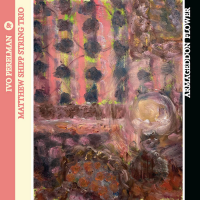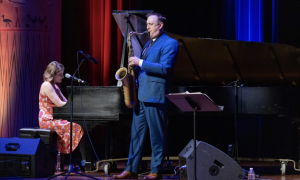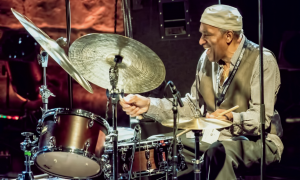Home » Jazz Articles » Catching Up With » Martin Torgoff Discuss Bop Apocalypse
Martin Torgoff Discuss Bop Apocalypse
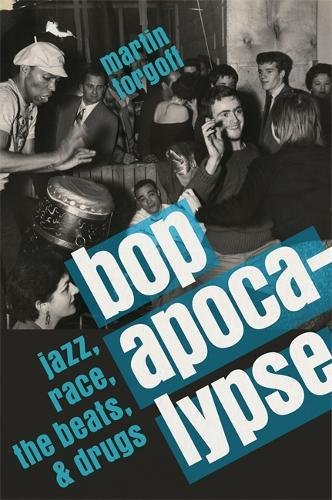 I recently reviewed Martin Torgoff's book Bop Apocalypse; Jazz, Race, The Beats and Drugs. Mr. Torgoff was kind enough to answer a few follow up questions.
I recently reviewed Martin Torgoff's book Bop Apocalypse; Jazz, Race, The Beats and Drugs. Mr. Torgoff was kind enough to answer a few follow up questions. One of the things that jazz people still try to understand is why so many players became heroin addicts in the 40's and 50's, even after it was clear that using junk would not make you the player Bird was. Did your understanding of this change before and after your research? Were you satisfied with the level of understanding you achieved about this question, or does it still seem puzzling?
Drug use is always a very complex and challenging subject, always made more so by the ideologies and hot buttons contained therein. I find it useful to try and look at it from the vantage point of the concept of set and setting, set being all of the factors and ideas around the drug phenomenon and setting being where it happens. In this case the setting is the jazz culture of the 20th century to 1960, and the set is all of the cultural, racial, social and political currents swirling around it. And beyond that is the human element. The idea that so many of the artists got on to dope because of Bird was only prevalent at the beginning of the heroin scene from '45 to '47—that was when it was a critical factor, but it went so much deeper than that. My research made me realize how the story of jazz and heroin and the aspect of the jazz lifestyle during that time was a story that played out against a whole backdrop that encompassed everything from the mafia's organization of the global heroin trade, policies of the police and the US government, and what happened in Harlem as a result—really the first great modern drug epidemic and an American tragedy.

Dizzy Gillespie
trumpet1917 - 1993
New York City was the center of most of the activity of the book. You spend some time on the San Francisco scene, very little on Central Ave., Los Angeles in general and nothing about activity around Big Sur-all places with a lot of drug use and alternative cultural activity. I was interested in why you didn't write more about that.
What I did in the book to a large degree was simply follow the marijuana. It arrived in New Orleans around 1910, just as jazz was coalescing, so it was a part of the story of jazz from the very beginning. It came up river to Chicago after the closing of Storyville in 1917; over the NY along with Pops and

Mezz Mezzrow
clarinet1899 - 1972

Dexter Gordon
saxophone, tenor1923 - 1990
Homosexuality was addressed, and to some degree at least, validated among the Beats, although much paranoia justifiably still inhered. Among jazz musicians, it seems to have been much more on the down low. At least that is the "common wisdom" and the way Bop Apocalypse basically handles it, which is not to bring it up in the jazz context at all. What's your feeling about this-was the incidence of homosexuality so low it was not worth addressing, or was the taboo about talking about it just more intense? Also, since influence seemed to flow from the jazz world to the Beats and not at all the other way, might there in fact have been some lessening of the taboo because of the Beat influence?
Very interesting question. Beyond the homosexuality of the great

Billy Strayhorn
piano1915 - 1967

Billie Holiday
vocals1915 - 1959
Two of the competing myths in America are: Rugged Individual-Wild West versus the Shining City on a Hill. The first says we should be free to pursue our own lives with little or no government interference. The second says we are members of a body politic, complying with an implied morality associated with the Puritan/Yankee tradition. In the history of drug use and enforcement we see the latter myth clearly dominating. Why do you think that was so?
I believe the prevalent reason was race. The whole regime of drug prohibitionism and the first drug laws were really about containing the "Other," whether ethnic immigrants, African Americans, or Mexicans, bohemians, sexual and cultural libertarians, etc. Fear of race-mixing was behind all of the early drug laws. It's stunning how the story of drugs so perfectly affirms the thesis of historian Richard Hofstadter in his classic essay The Paranoid Trend in American Politics.
Tags
Catching Up With
Steve Provizer
Dizzy Gillespie
New York City
san francisco
Los Angeles
New Orleans
Chicago
Mezz Mezzrow
Kansas City
Dexter Gordon
Billy Strayhorn
Billie Holiday
Comments
PREVIOUS / NEXT
Support All About Jazz
 All About Jazz has been a pillar of jazz since 1995, championing it as an art form and, more importantly, supporting the musicians who make it. Our enduring commitment has made "AAJ" one of the most culturally important websites of its kind, read by hundreds of thousands of fans, musicians and industry figures every month.
All About Jazz has been a pillar of jazz since 1995, championing it as an art form and, more importantly, supporting the musicians who make it. Our enduring commitment has made "AAJ" one of the most culturally important websites of its kind, read by hundreds of thousands of fans, musicians and industry figures every month.

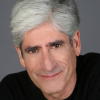





 Buy Now
Buy Now


